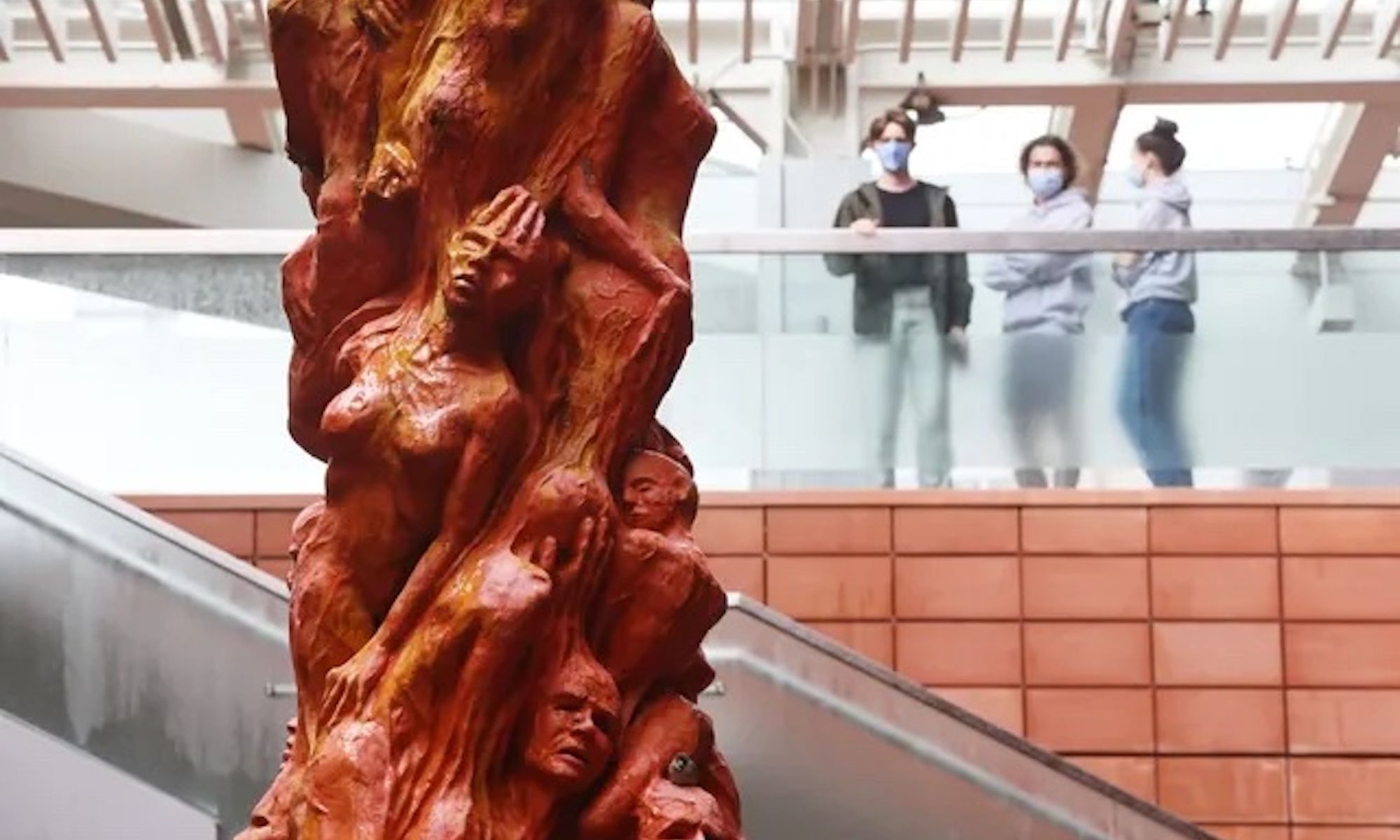Jens Galschiøt's Pillar Of Shame (1997), which was removed from the University of Hong Kong in 2021, has been seized by Hong Kong authorities Courtesy of the artist
A sculpture marking the Tiananmen Square massacre in Beijing in 1989 has been seized by police in Hong Kong. Artist Jens Galschiøt’s Pillar of Shame (1997) monument, depicting a mass of deformed bodies, was removed from the campus of the University of Hong Kong in December 2021. The work was installed in 1997 shortly before the United Kingdom handed over rule of the former colony to China; the anniversary of the Tiananmen Square event is 4 June.
The Hong Kong government released a statement Saturday (6 May) saying that “the National Security Department of the Hong Kong Police Force conducted searches [on 5 May] with a warrant and seized an exhibit related to an 'incitement to subversion' case under the National Security Law”. Galschiøt’s work is not named in the statement.
According to the South China Morning Post, the work was taken from the Kadoorie Centre in Yuen Long, an agricultural research facility run by the university, on 5 May. Galschiøt claims that the sculpture has been seized by “the police as evidence against the Democracy Movement in Hong Kong”.
The newspaper added that the Secretary for Security, Chris Tang Ping-keung, defended the decision by the national security police to confiscate the work; he added that the removal is unrelated to the forthcoming anniversary of the Tiananmen crackdown.
The National Security Law, introduced in June 2020, criminalises acts of secession, subversion of the state, terrorism and collusion with foreign forces. Offenders could be jailed for life. It was drafted by Beijing, bypassing Hong Kong’s legislature. The Hong Kong government stressed that freedom of expression was well-protected under the Basic Law (the Special Administrative Region's mini-constitution), and that the national security law only applies to “a tiny number of cases”.
The activist Czech organisation NGO DEI is leading a campaign to secure the return of Galschiøt’s sculpture, and has subsequently launched a petition. A spokesperson for the organisation tells The Art Newspaper that it plans to contact the Hong Kong government and “insist that Jens is the rightful owner of the pillar; we will request an explanation of the situation and need the Pillar of Shame to be returned to the owner… we are not letting them keep, hide and dispose of [Galschiøt’s] private property.”
The Hong Kong government's statement (6 May) also “strongly condemned an [unnamed] organisation for making gravely unfounded allegations against police operation in collecting evidence… the Hong Kong law enforcement agencies are duty-bound to bring to justice people and entities acting in violation of the laws of Hong Kong, including the National Security Law.”
The NGO DEI spokesperson adds: “We hereby declare that the government is not only limiting the freedom of artists but also setting a new low point for freedom in Hong Kong. Hong Kong should be a culturally diverse and open place that respects artistic freedom.”
Representatives of the Hong Kong government did not respond to a request for further comment.

